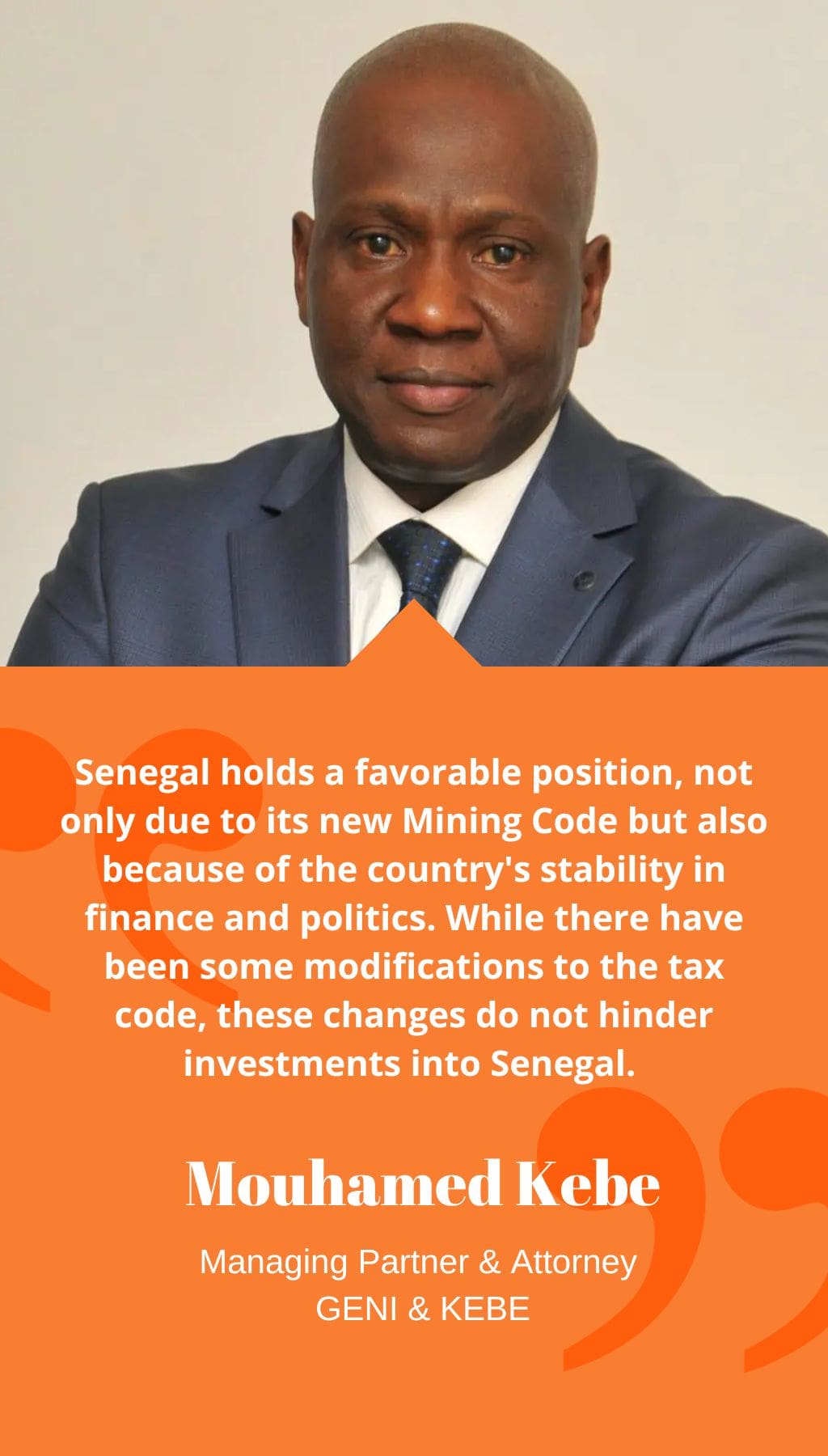
- Senegal | 26 March 2019

Could you provide an overview of how Geni & Kébé has evolved since its establishment in 1912?
Geni & Kébé has a rich history dating back to 1912. Under the leadership of Pierre Victor Geni, who became the first President of the Bar Association of Senegal in 1960, the firm has undergone significant development. Over the years, we have diversified our service offerings and expanded our reach both locally and internationally. Our partnership with DLA Piper has further enhanced our capabilities through an extensive network of renowned firms across Africa, Western Europe, Eastern Europe, North America, and Asia. Additionally, within our firm, we have a diverse team that has allowed us to broaden our horizons and cater to a varied clientele.
As a firm, we possess a particular strength in the mining industry. However, we also boast substantial expertise in the energy and resources sectors as a whole. For instance, we have worked extensively with mining companies in Senegal, as well as companies involved in oil and gas and solar energy operations.
What were the motivations behind the revisions to Senegal’s mining code by the government?
The government’s revision of the mining code in November 2016 was a response to Senegal’s aspirations for progress. Historically, the government felt that it did not fully benefit from the mining sector in terms of local engagement. From an investor perspective, there haven’t been any major changes, and the impact on companies already operating in the country has been minimal. The key revisions primarily focus on promoting local content and ensuring greater benefits for Senegalese nationals.
How attractive is Senegal as a mining country for investors, particularly when compared to neighboring countries with more developed sectors?
Senegal holds a favorable position, not only due to its new Mining Code but also because of the country’s stability in finance and politics. While there have been some modifications to the tax code, these changes do not hinder investments into Senegal. Very few investors have expressed concerns about alterations to their financial contracts.
Another notable change in the mining code is the increased consideration given to artisanal miners, who were previously overlooked. We have also worked closely with the artisanal mining sector, facilitating their transition to mechanization and optimizing their operating conditions.
What factors have contributed to the rise in arbitration cases in the mining sector?
One of the main factors is the implementation of new mining regulations and taxes in various African countries. These reforms have often had an impact on existing mining contracts, leading to an increase in arbitration cases. We have been actively involved in developing arbitration programs, and the OHADA system provides provisions for arbitration. The OHADA Arbitration Act applies to 17 countries, and the Common Court of Justice and Arbitration in Abidjan is increasingly recognized as a major arbitration center in Africa.
How does Geni & Kébé differentiate itself from other law firms?
We differentiate ourselves through our ability to bridge the gap for clients entering Africa from abroad. With a diverse team comprising professionals from various nationalities and international law experience in different countries, we can effectively serve clients with global backgrounds. Over the years, we have developed extensive knowledge in sectors that are of great interest to international investors, such as mining, petroleum, and energy. While remaining a Senegalese law firm, we have built an extensive network across Africa, enabling us to provide strong local expertise while maintaining international standards. This positions us well to serve clients throughout the continent.
What is the firm’s strategy for further expanding its reach and client base?
Our strategy for the upcoming years is to consolidate and become a truly Pan-African law firm, serving the entire Francophone Africa region. Many investors in this region come from common law systems and seek legal assistance from firms familiar with these systems. As a significant number of our lawyers have studied in the United States, the United Kingdom, and South Africa, we possess a highly international dynamic. Our team members, hailing from diverse backgrounds, bring additional expertise in the legal systems of their respective countries, adding significant value to our services. We aim to establish partnerships with like-minded firms across the continent, allowing clients to work with a single firm for their projects throughout Africa, streamlining their legal processes.














